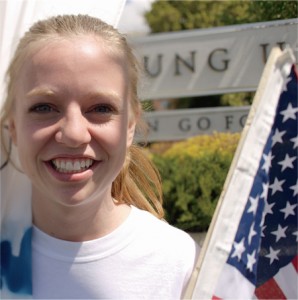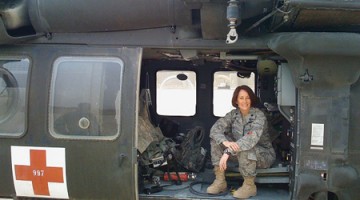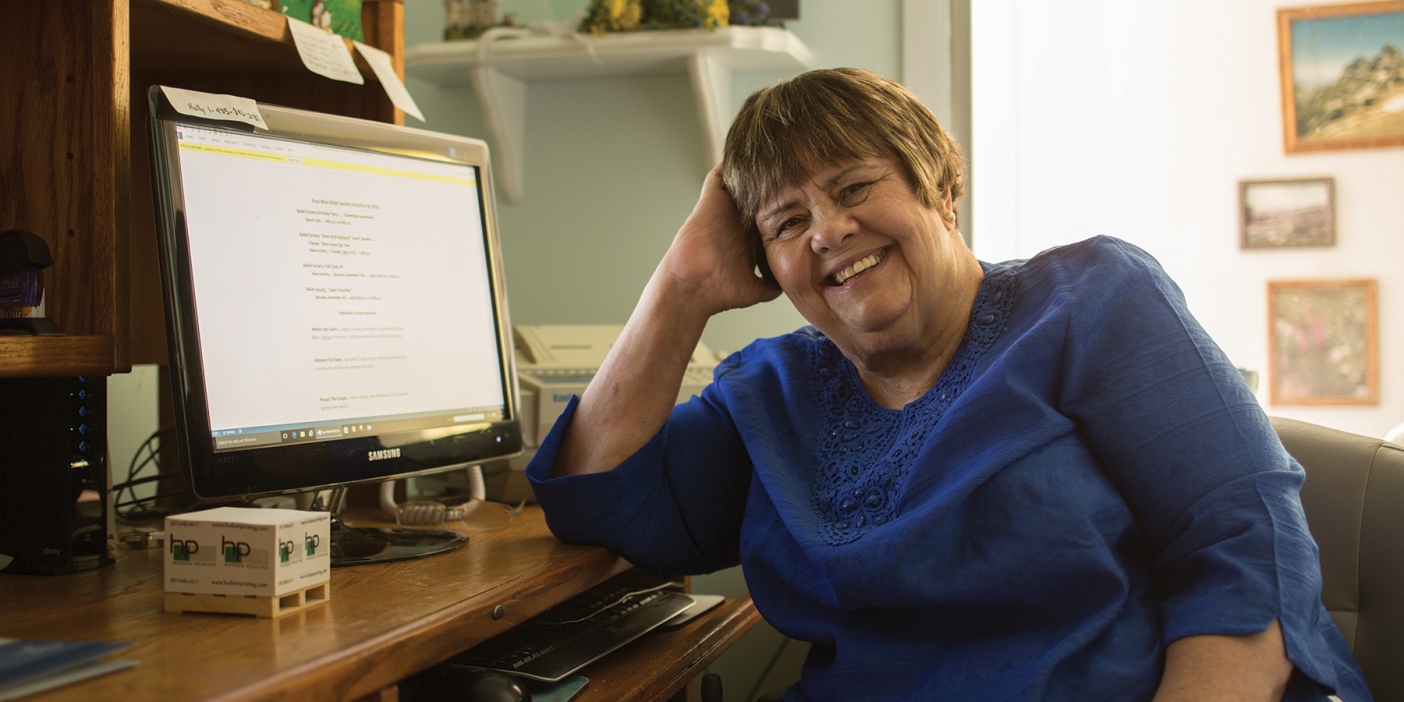Through a sit-in and a silent protest, a BYU student found a way to rise and shout.
Plates and cookies made up most of the BYU College Democrats club’s expenses early last winter—and they had to provide for only five people.
That was the average attendance at club meetings—before Vice President Dick Cheney was announced as BYU’s April commencement speaker. Suddenly the club’s attendance multiplied tenfold, and club president Diane S. Bailey (’08) found herself leading a much more active group than she had agreed to steer a few months earlier.
“I didn’t want to be president. I was begging, ‘Somebody else, please,’” recalls Bailey, a California native with a bright smile and a firm handshake. A Democrat, yes—at least by Utah standards—and passionate, to say the least, about funding public schools, protecting the environment, and promoting peace and social justice. She had no idea then her tenure would culminate in leading a political protest on graduation day.
“What a day is all I can say,” declares her mother, Linda J. Bailey (BA ’73), who tidies Diane’s apartment for cleaning checks the evening after the protest, while Diane consents to one last interview. She’s done 20 today or more. Vacuum whirring in the background, Diane Bailey recounts the day’s events.
April 26, 2007: BYU welcomed Vice President Dick Cheney to speak at commencement. Surprisingly, Bailey also welcomed the visit, even though she had conducted a BYU-approved protest against Cheney’s policies three weeks earlier and led another just hours before Cheney’s Marriott Center speech.
“He’s second in line to the president, and that’s important to recognize,” Bailey says. However, she worried that the invitation would be incorrectly interpreted as an endorsement of the vice president’s policies by the university, which is politically neutral, or by its students, who are politically diverse.
Having worked on BYU’s Student Advisory Council, Bailey knew how to petition for public expression. Yet she had no idea how quickly the press would latch on to her cause.
“If you would have told me the New York Times would be calling my number—repeatedly,” Bailey says, eyes rolling, “I would have laughed.” As the calls came in from The Associated Press, Newsweek, even Al-Jazeera, she realized what would have made a sensational national story: “BYU students cut loose, throw rocks, burn things in effigy!” Bailey exclaims, pointedly exaggerating. “But that’s not what we wanted. We love this school. We love this Church. We love this town. No compromises.”
Bailey stipulated strict demonstration rules to make her purpose clear.
“And she did superbly well,” says BYU dean of students Vernon L. Heperi (BA ’91), one of many BYU administrators who worked with Bailey. “She followed all university processes.”
She even refused an offer from The Daily Show with Jon Stewart to appear on the national comedy news hour.
“I think that says a lot about Diane,” says Richard D. Davis, political science professor and advisor to the College Democrats. “She was quite protective [of BYU], and that’s a story that needs to be told.”
Less than 24 hours after the protest, Bailey boarded a plane to Washington, D.C., for a full-time summer internship split between the U.S. House Committee on Foreign Affairs and the Office of Interparliamentary Affairs. She returns to BYU this fall, relinquishing her position as president of the College Democrats with new hope for her dating life.
It used to be the second or third date before she’d disclose that she was the president of the BYU Democrats.
“Now I hope everyone knows,” she laughs. “You have to believe in what you’re doing, and people will be drawn to that.”










